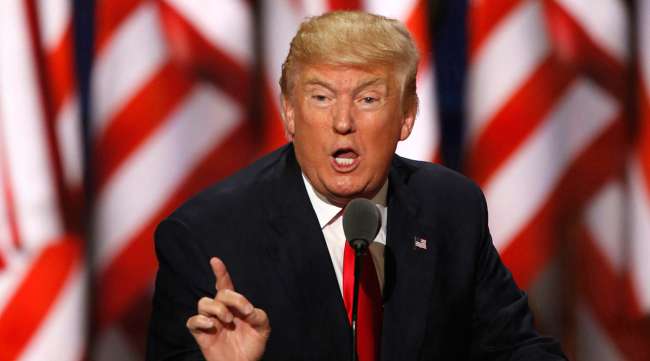Trump’s China Tariffs Will Pinch US Consumers, Retailers Warn

Americans will pay more for everything from big-screen TVs to school supplies if the Trump administration follows through on threats to slap tariffs on Chinese imports, U.S. retailers warned.
President Donald Trump has threatened to impose duties on as much as $150 billion in Chinese goods to punish Beijing for alleged violations of intellectual property. The administration hasn’t said when tariffs will take effect and is holding high-level negotiations with Chinese officials that could result in a change of policy.
The U.S. Trade Representative’s office said it was careful to pick a list of imports that wouldn’t raise prices for consumers. But representatives for the U.S. retail industry noted May 16 that the tariff list still includes televisions, monitors, mini-refrigerators, tools and other products sold at stores run by Walmart Inc. and Target Corp. They spoke during the second day of three-day hearings in Washington on the proposed tariffs.
RELATED: US factory managers concerned about effects of Trump’s tariffs
“It’s not complicated,” David French, senior vice president for government relations at the National Retail Federation, told a panel of government officials at the hearing. “Higher tariffs are a tax on growth that will hurt consumers and cost American jobs.”
Additional Costs
Retailers will pass on to consumers the additional costs from tariffs because they can’t quickly change suppliers, French said. Stores already have placed orders for back-to-school and holiday sales, he said.
General Electric Co., one the largest U.S. employers and exporters, said imposing tariffs on products such as aviation and medical parts could hit U.S. operations and jobs — including its Wisconsin-based facilities that employ 6,000 people.
RELATED: Fed economists say tariffs more likely to kill than create jobs
The company asked the government to exclude components that are intracompany transfers from facilities in China that are owned and controlled by U.S. manufacturers, as well as inputs that cannot be quickly replaced and those containing high U.S. content.
“Tariffs would impose significant and disproportionate costs on U.S. businesses, workers and consumers without advancing — and even potentially undermining — the president’s goals,” Karan Bhatia, president of government affairs and policy at GE and a former deputy U.S. trade representative, said in his testimony.
No Consensus
There’s no clear consensus among economists about the long-term price impact of tariffs. Federal Reserve Bank of San Francisco President John Williams said May 15 that a “huge increase” in tariffs would hurt economic growth and prove inflationary. But the International Monetary Fund’s Western Hemisphere Director Alejandro Werner in April said that price increases from tariffs would be temporary.
RELATED: Republicans warn Trump a trade war risks party’s chances in November
American retailers aren’t so sanguine.
The National Retail Federation and Consumer Technology Association released a study last month estimating that the proposed tariffs and resulting decline in U.S. imports from China would force consumers to pay $711 million more during the next year than they otherwise would for the televisions they continue to buy.
The American Apparel & Footwear Association is opposing tariffs on dozens of lines of textile, apparel and footwear equipment and machinery such as sewing machines because it says the duties would boost costs for members in the United States. The average family of four would pay at least an additional $500 a year to buy consumer products affected by the tariffs, Rick Helfenbein, the group’s president and CEO, testified.
“It is a fact that tariffs are a hidden tax on U.S. consumers,” he said. “More tariffs are not a cure for what ails us.”
With assistance from Rich Miller.




